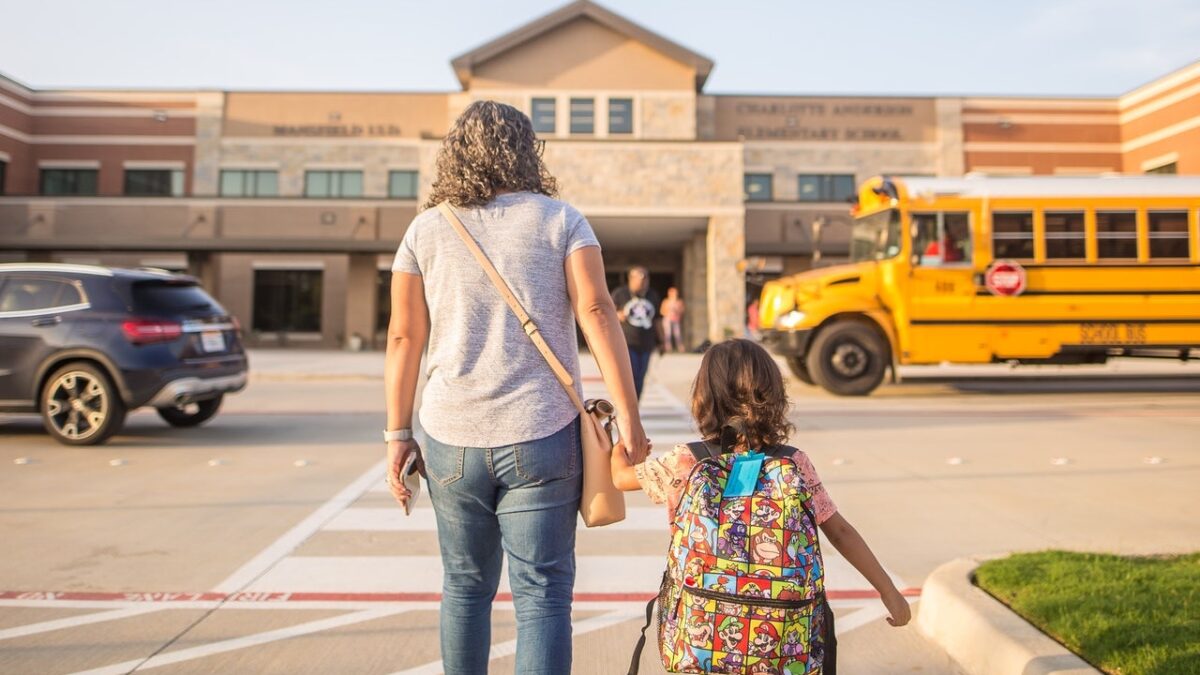The response to Covid-19 has accelerated a growing divide between parents and schools, which is mostly to say between parents and teachers’ unions. From denying students the ability to learn in-person to forced masking to teaching divisive, historically inaccurate curriculum based on critical race theory (CRT), the trend has been to sideline parents from their children’s educations.
In response to this, states are taking action to ensure parents remain the primary decision-makers for their kids. Florida Gov. Ron DeSantis signed a parents’ bill of rights in June 2021. Missouri is considering a similar proposal and in Virginia, Gov. Glenn Youngkin issued 11 executive orders on his first day in office, two of which were related to education. Indiana is considering a parents’ bill of rights as part of a push to banish despicable materials that kids shouldn’t be taught.
At the national level, Sen. Josh Hawley has also proposed a Parents’ Bill of Rights, although so far it has not gained any traction. Former Wisconsin Gov. Scott Walker, now president of Young America’s Foundation, declared “2022 is the Year of the Parent.” In other words, there’s a growing appetite among parents to take a more active role in education, whether through supporting legislation to empower them or taking the initiative to join their local school boards.
On Thursday, January 20, Texas Gov. Greg Abbott added Texas to the list of states attempting to tackle the divide when he announced his own Parental Bill of Rights, which will be voted on and perhaps enshrined into Texas’ constitution in January 2023. The initiative consists of seven points clarifying the fact that parents, not school boards or unions, are in charge of their kids’ educations.
In announcing the proposal, Abbott said, “The role of parents is being diminished by government itself across the U.S. Parents are losing a voice when it comes to their children’s education and health matters. Many parents feel powerless to do anything about it. That must end … Under the Parental Bill of Rights, we will amend the Texas Constitution to reinforce that parents are the main decision-makers in all matters involving their children.”
A key point in Texas’ proposed amendment, which could serve as a model starting point for other states reads, “Expand parents’ rights to access course curriculum and all material that is available in any education setting for their student through online posting and other methods so parents know what topics will be taught.” While Texas parents can currently get those materials, it requires an information request rather than the click of a mouse.
Submitting an information request is an unnecessary burden, particularly in an age in which schools are teaching children to be racists, encouraging them to be climate change alarmists, and pushing ludicrous and dangerous ideas about changing your sex or being “two-spirit.” Granted, two of those occurrences are from California, a state parents should just move away from rather than attempt to reform.
Even in Texas, though, there are leftist salvos in the culture war. Just last October, a mom in Keller, who with her husband had moved their family from California to avoid such things, discovered their new town’s library was offering a book featuring graphic depictions of oral sex. Parents in Leander, a town north of Austin and part of its greater metropolitan area, also discovered books with depictions and illustrations they don’t want their children to have access to without their permission.
While all these initiatives are worthy ideas, and Abbott’s proposal is the strongest yet, the jury is still out on whether they will resolve the issues parents are seeing with schools.
For starters, parental bills of rights require parents to actually be involved, which doesn’t always happen, even in the age of Zoom schooling. As a result, these various bills, amendments, and executive orders could result in nothing more than “won’t somebody please think of the children” activity. As the great men’s basketball coach, known for also educating his players, John Wooden said, “Never mistake activity for achievement.”
Elected officials such as Abbott, DeSantis, and Youngkin may be leading the nation on this front, but they’re doing so in response to their constituents. Youngkin’s victory was likely sealed, in fact, when his opponent Terry McAuliffe said, “I don’t think parents should be telling schools what they should teach.” Given that Youngkin’s implicit message is “Stop messing with our kids, you freaks!,” the tide on parents shipping their kids off to school and hoping for the best seems to be turning.
Parents’ bills of rights could still turn out to be gimmicks, an activity that doesn’t lead to achievement, but our kids’ educations are not the government’s job. But at least for those of us who do send our kids to government-run or -funded schools, such measures offer us a way to take more charge and ensure that we approve of what’s being taught in the classroom and offer recourse for times when we have legitimate criticisms.
The work is still up to us parents, but governors and legislatures can give us the tools we need to do that work more effectively.









